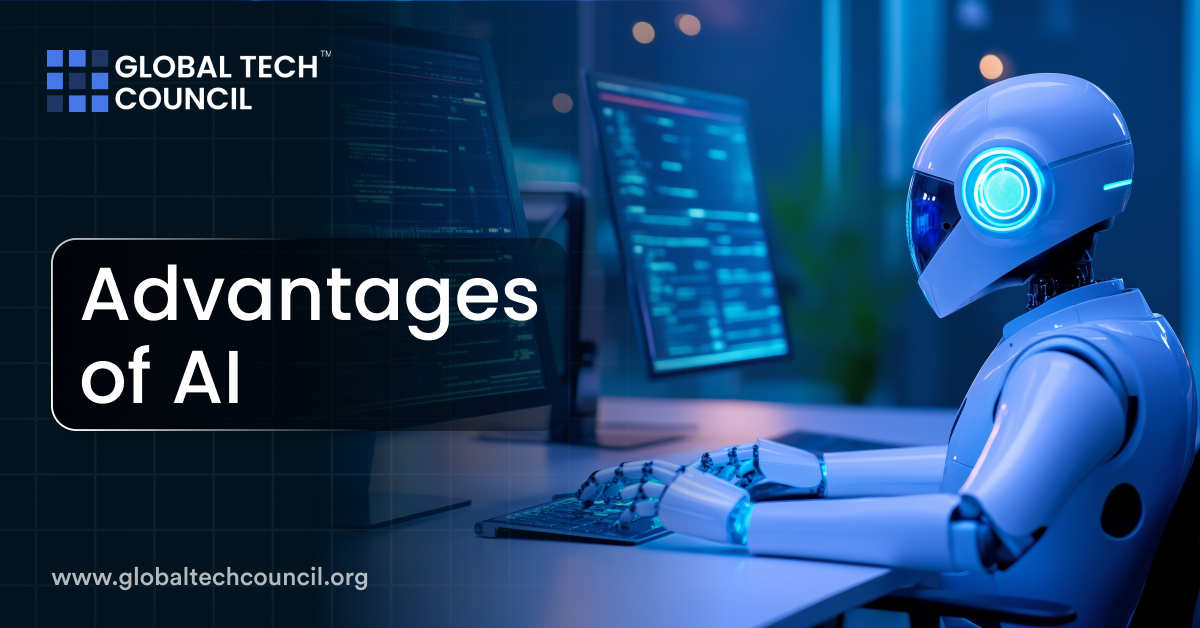Artificial Intelligence (AI) is becoming a significant part of everyday life, shaping developments in different fields, from medicine to commerce. As AI advances, its advantages are increasingly clear.
Boosting Efficiency and Productivity
A notable advantage of AI is how it enhances productivity and efficiency. AI systems are designed to handle repetitive duties that would typically take a lot of time and resources. For instance, in manufacturing, robots powered by AI assist workers with tasks like assembly and quality checks, speeding up production significantly. AI systems can predict when machines might fail, allowing for timely repairs and minimizing downtime. These improvements lead to smoother operations, better output, and consistent accuracy.
AI is also transforming how businesses work. For example, AI tools are able to analyze large sets of data, spot inefficiencies, and suggest ways to improve. This can be especially helpful in sectors such as logistics, where AI helps optimize delivery routes to cut down on fuel costs and travel time, or in project management, where resources can be allocated more effectively.
Smarter Decision-Making
AI does more than just automate processes; it supports people and businesses in making better decisions. AI systems have the capability to process and review large volumes of data, much more than humans could manage on their own. This leads to insights that help guide smarter choices. For example, in healthcare, AI analyzes medical records to assist doctors in diagnosing illnesses or providing personalized treatment options based on a person’s medical history.
In the business world, AI aids decision-making by predicting trends in the market. Companies can use AI to forecast customer needs and adjust their inventory accordingly, reducing both waste and costs. This type of predictive power is especially useful in fields such as retail or finance, where understanding customer behavior is key to doing well.
Progress in Healthcare
AI’s impact on healthcare has been significant, enhancing patient care and improving efficiency. AI-powered tools can review medical images faster and more accurately than older methods, allowing doctors to detect conditions like cancer earlier. Additionally, AI can play a crucial role in drug development by speeding up the process of discovering new treatments through simulations of drug reactions in human bodies.
AI is also streamlining data management for healthcare providers. It automates administrative tasks such as appointment scheduling and billing, allowing medical staff to spend more time focusing on patients. Chatbots are being used to answer basic patient questions and schedule appointments, reducing wait times and improving the overall patient experience.
Customized Experiences and Better Service
AI’s ability to process and analyze huge amounts of data means it can create more personalized experiences for individuals. This is especially noticeable in industries like online shopping, where AI-driven algorithms suggest products based on a person’s past purchases or browsing habits. Streaming services like Netflix also rely on AI to recommend movies and shows based on previous viewing history, keeping users more engaged.
In customer service, AI-powered chatbots are becoming more common, handling many routine inquiries. These bots are able to give real-time responses, improving customer satisfaction. At the same time, they help businesses save on staffing costs by reducing the need for human customer service representatives.
Improving Safety and Security
AI plays an important role in boosting safety and security in areas such as cybersecurity and surveillance. In cybersecurity, AI systems can detect irregular patterns in network traffic, which might indicate a hacking attempt. This allows businesses to act quickly to protect sensitive data. AI’s ability to analyze information in real time is also helpful in industries like banking, where it can detect fraudulent transactions and prevent credit card fraud.
In physical security, AI is used in smart surveillance systems. AI-powered cameras can recognize faces and detect unusual behavior, making them useful in airports or other public spaces. These systems can alert authorities to potential threats before problems escalate, adding an extra layer of security.
Economic Growth and New Job Opportunities
Despite concerns that AI could replace jobs, it’s clear that AI is also creating new opportunities in various sectors. While some repetitive tasks are being automated, AI has opened up jobs in fields like data analysis, AI development, and machine learning. Reports suggest that AI could create millions of new jobs worldwide by 2025, contributing to overall economic growth. Many businesses are already experiencing productivity gains from AI, which further fuels this growth.
In the logistics sector, for example, AI helps with supply chain management while also creating new roles in AI development and system maintenance. In healthcare, the use of AI to assist doctors is creating a need for professionals who can operate and improve these systems, leading to more job opportunities.
Conclusion
Artificial Intelligence offers numerous advantages across a wide range of industries. From boosting efficiency to aiding in decision-making, AI is making a significant impact in areas like healthcare, finance, and manufacturing. Its ability to provide personalized experiences, improve security, and even contribute to job creation means AI will play a big part in shaping the future.
Although challenges remain, including ethical considerations and the need for clear regulations, the positive effects of AI show that its continued growth and integration will bring more opportunities and benefits for society as a whole. As AI progresses, it will likely continue to offer more ways to improve daily life and work.
